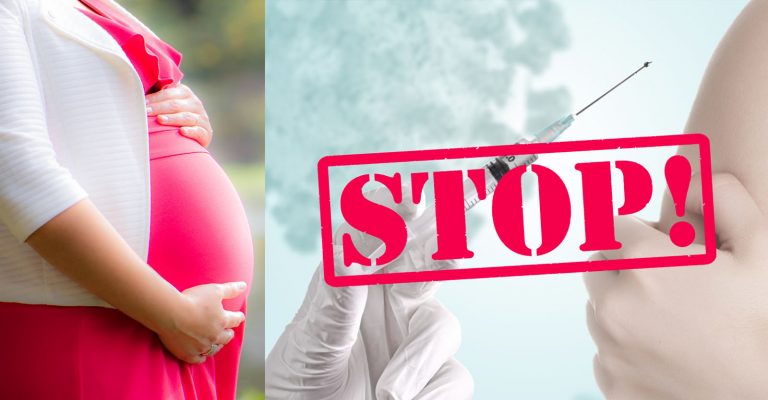Greek Healthcare Workers Launch Hunger Strike: ‘We Don’t Need a Vaccine Passport to Be Free’
As a hunger strike protesting Greece’s COVID-19 vaccine mandates for healthcare workers entered its 17th day, one suspended healthcare worker yesterday told a crowd of protesters in Athens, “we don’t need vaccine passports to be free.”
Speaking outside the Greek parliament building, Zoe Vagiopoulou, one of the hunger strikers, delivered a speech that made waves on Greek social media.
Vagiopoulou said:
“We have been on hunger strike for 17 days for the right to work. Work is a right that nobody can deny us. We are 7,500 families [referring to the number of healthcare workers who remain suspended] outside of the public health system, which our parents and grandparents have paid into but which we are excluded from due to permanent decisions in violation of the law and constitutional order.”
Vagiopoulou is one of five Greek healthcare workers who joined a hunger strike on March 21 to protest their suspension and the ongoing COVID-related restrictions.
Greece’s health ministry placed on unpaid leave all healthcare workers who did not meet the Sept. 1, 2021 deadline for the mandatory COVID vaccination of medical staff and who did not receive a booster dose by March 31.
Many of the estimated 10,000 healthcare workers who did not get vaccinated have organized ongoing protests in what has been the most consistent and sustained opposition to the restrictions imposed by Greece’s government — measures recognized as the strictest such policies in Europe.
In an interview with The Defender, Argyri Kagia, a radiologist barred since Sept. 1, 2021 from her job at a hospital in Athens for refusing the vaccines, discussed the hunger strike and protests.
Kagia said five healthcare workers, all but one identified solely by their first names – Lambros, Nikos, Pericles, Sofia and Zoe Vagiopoulou — were the original participants.
She described their motivation to commence a hunger strike as “a personal decision” and “a last-ditch effort to be heard.”
Since the hunger strike began, Kagia said, the suspended workers have established a permanent presence outside the Greek Ministry of Health “every day and night in shifts.”
Protests and marches are also organized “towards various government ministries and public bodies.”
Government officials unfazed by protests?
The hunger strike represents an unprecedented new phase of protests against COVID-related mandates and restrictions.
Perhaps the closest equivalent is the hunger strike launched in September 2021 in Nice, France, by two hospital workers — Christophe Nait, an emergency care assistant, and Thierry Paysant, a fire safety officer — in protest of France’s vaccine mandate.
However, Nait and Paysant ended their strike in October 2021. Paysant told French media that “after a month, it is useless, people get used to it and nobody cares,” adding that a representative of the French state told them they were “the collateral damage” of the vaccine mandate.
The actions of the Greek government in response to the hunger strike and protests indicate it may hold a similar view of unvaccinated healthcare workers.
On March 30, during a march toward the Greek parliament, riot police fired tear gas at the protesters, including the five wheelchair-ridden hunger strikers, one of whom was injured.
The incident was captured on video and circulated on Greek social media, though the news outlet that initially published the video online later removed it without explanation.
Unlike healthcare workers, police are exempt from Greece’s workplace vaccination requirement.
Riot police were later seen protecting Greek health minister Thanos Plevris — known for his long-standing far-right ties — during an April 4 visit to the Thriasio hospital outside Athens.
According to Kagia, “the major and well-known media [of Greece] have not reported” about the hunger strike.
As previously reported by The Defender, Greek media received €40 million ($43.6 million) in state subsidies since 2020, purportedly to help keep the struggling outlets afloat.
The funding is widely viewed in Greece as a way to encourage favorable coverage of the government’s heavy-handed COVID response.
Kagia told The Defender despite the continued protests, the Greek government on March 30 voted to extend until December 31 the suspension of unvaccinated healthcare workers, which was due to expire March 31.
The Greek government has thus far refrained from outright firing the workers, despite threats to do so.
Without a salary or ability to work, however, they are essentially unemployed, “without pension contributions” and with most “surviving on borrowed funds and with the help of relatives and supporters,” according to Kagia.
Assimoula Economopoulou, a biopathologist at Elpis hospital in Athens who is unvaccinated and participating in the protests, told The Defender she contracted COVID in August 2021, but was informed that her natural immunity, while allowing her to obtain a COVID passport valid until March 2022, would not be recognized for employment purposes and that she was obligated to get vaccinated.
Greece at forefront of vaccine passports, restrictions
As previously reported by The Defender, Greece was the second European country, after Austria, to impose a vaccine mandate on segments of the general public, requiring everyone age 60 and over to get vaccinated by January 15 or face a monthly fine of €100 ($109) — a significant sum in Greece, where the average monthly pension is €722 ($787).
However, the Greek health ministry revealed the imposition of the fine would be suspended as of April 15, and that the measure will be “revisited” in September.
The Greek government also announced that second booster doses, exclusively using mRNA vaccines (Pfizer and Moderna), would be available for seniors beginning April 7.
Greek authorities indicated availability of the second booster will extend to the general population by September.
The monthly fine does not appear to have convinced most unvaccinated seniors to get the vaccine or even to pay the fine — as an estimated 500,000 seniors remain unvaccinated or have not received a booster, and only 14% of those fined have reportedly paid.
Vaccine passports, along with masks, are still mandatory in Greece for accessing many public and private venues, such as restaurants and most retail shops, despite an initial sunset date of March 31 for the passports.
Most other European countries and U.S. jurisdictions have lifted such measures.
While the government has hinted that the vaccine passport mandate may be lifted after Greek Orthodox Easter (April 24), government officials did not specify an exact date.
As previously reported by The Defender, Greece was the first country to formally propose the implementation of digital vaccine passports throughout the European Union, and the extension of these passports to include the COVID booster dose.
Until recently, Greece was the only EU member that enforced a shorter period of validity for its vaccine passports: seven months for those vaccinated and three months for those with a previous COVID infection, instead of nine and six months, respectively, in the rest of the EU.
Pressure from the EU led Greek authorities to match the EU period of validity of its passports as of April 2.
Nevertheless, recent statements by the doctors comprising the Greek government’s COVID committee — which enjoys legal immunity — indicate models predict a new “surge” in October, at which time the passports may be reinstated “if needed.”
The views and opinions expressed in this article are those of the authors and do not necessarily reflect the views of Children’s Health Defense Europe.
Suggest a correction







